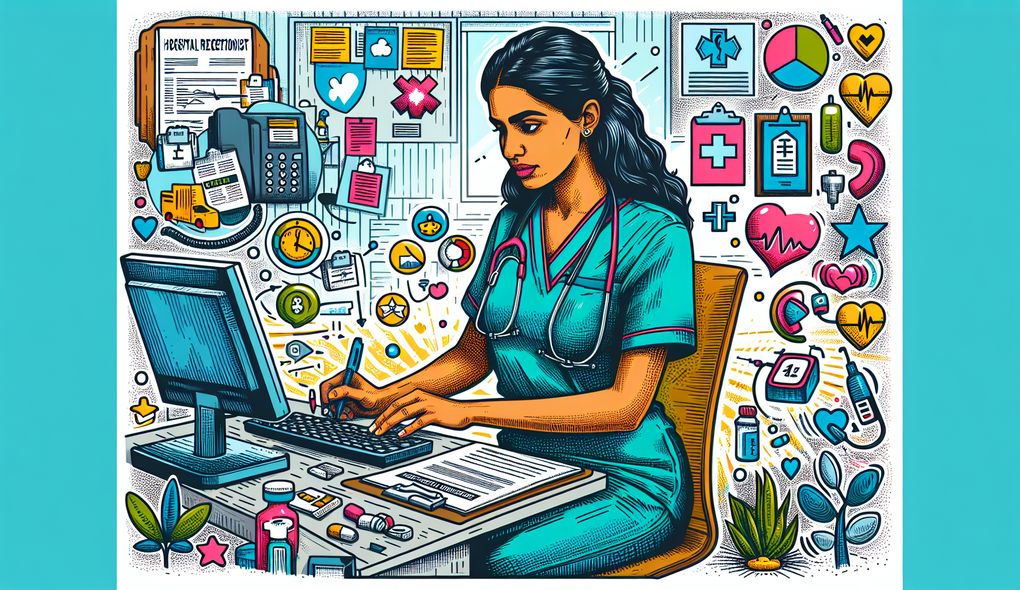How do you handle situations where you do not have the answer to a patient or visitor's question?
INTERMEDIATE LEVEL

Sample answer to the question:
When faced with a situation where I don't have an answer to a patient or visitor's question, I first ensure that I remain calm and composed. I would then apologize for not having the information at hand and assure them that I will do my best to find the answer for them. I would then take immediate action by either consulting a colleague or supervisor who might have the answer, or by using available resources such as computer systems or reference materials. If the answer cannot be found right away, I would promise to follow up with the patient or visitor as soon as I have the information. I understand the importance of providing accurate and timely information to patients and visitors, and I strive to always fulfill their needs and expectations.
Here is a more solid answer:
In situations where I do not have the answer to a patient or visitor's question, I would approach the situation with empathy and active listening. I would acknowledge their question and apologize for any inconvenience caused. To find the answer, I would utilize the resources available to me, such as electronic health record systems or medical reference books. If these resources do not provide the necessary information, I would seek assistance from colleagues or supervisors who may have the expertise or knowledge to address the question. Throughout the process, I would maintain open communication with the patient or visitor, providing them with regular updates on the progress of finding the answer. If necessary, I would offer alternative solutions or direct them to the appropriate department or healthcare professional who can better assist them. By taking this approach, I ensure that the patient or visitor feels heard, valued, and that their question is being addressed in a timely and efficient manner.
Why is this a more solid answer?
The solid answer includes specific details about using electronic health record systems and medical reference books as resources. It also emphasizes maintaining open communication and offering alternative solutions if needed.
An example of a exceptional answer:
When faced with a situation where I don't have the answer to a patient or visitor's question, I would follow a structured approach to ensure their needs are met. Firstly, I would actively listen to their question, clarifying any points of ambiguity to fully understand their query. Next, I would empathize with their situation, acknowledging any concerns or frustrations they may have. I would then assure them that I will do everything possible to find the answer they need. To begin my search for the answer, I would utilize the medical reference materials available to me, such as textbooks or online resources. If these sources do not provide the necessary information, I would consult with my colleagues or supervisors, leveraging their expertise and knowledge. I would also utilize the hospital's electronic health record system to gather any relevant patient data that may contribute to finding the answer. Throughout the process, I would maintain regular communication with the patient or visitor, providing updates on my progress and estimated timeframe for finding the answer. If I cannot find the answer immediately, I would offer an alternative solution or direct them to the appropriate healthcare professional who can best assist them. By following this structured approach, I ensure that the patient or visitor feels supported, their question is addressed efficiently, and their overall experience is positive.
Why is this an exceptional answer?
The exceptional answer provides a detailed and structured approach to handling situations where the candidate does not have the answer. It mentions specific actions such as clarifying the question, utilizing medical reference materials and electronic health record systems, and maintaining regular communication with the patient or visitor.
How to prepare for this question:
- Familiarize yourself with the hospital's electronic health record system and other healthcare management software to quickly retrieve relevant information.
- Keep medical reference materials readily accessible at the reception desk to assist in finding answers.
- Build strong relationships with colleagues and supervisors to facilitate collaboration and knowledge-sharing.
- Develop active listening skills to ensure a clear understanding of the patient or visitor's question.
- Practice empathetic communication to make patients and visitors feel understood and supported.
What are interviewers evaluating with this question?
- Customer service orientation
- Problem-solving skills
- Teamwork and collaboration

